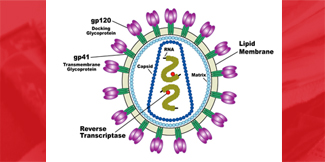Belize observes World AIDS Day on December 1 of every year. For this year’s observation, a free testing booth was set up at the Western Regional Hospital as well as other parts of the country. This year’s theme for World AIDS Day is, “Global Solidarity, Shared Responsibility”.
In 2019, according to UNAIDS, an estimated 38 million people were living with HIV globally, and “around 690,000 people died from AIDS-related illnesses worldwide.” Also, some 33 million people have been killed by AIDS over the last four decades. The encouraging news is that 2019’s mortality marked a 60 percent reduction since 2004, the peak year of AIDS deaths. However, 1.7 million people were newly infected with HIV in 2019.
The Executive Director for the National AIDS Commission, Enrique Romero has told the media that of the estimated five thousand persons living with HIV in Belize, only some two thousand five hundred have been diagnosed and know their status. For the past five to six years on an annual basis, there have been a hundred and fifty new infections in Belize. The statistics are also showing that on an annual basis there have been one hundred and ten persons dying from AIDS.
According to Romero, the Ministry of Health is one of the biggest partners of the National AIDS Commission in the national response, when it comes to dispensing of antiretroviral medications every month.
“So, what we did was reach out to Ministry of Health officials in Belmopan and through the communication with them, they agreed that in certain cases the medication could be dispensed for three months to avoid the exposure of persons with HIV having to go to health facilities to pick up every month. So that’s something that has worked greatly and tremendously and we’re very appreciative to the Ministry of Health for taking those considerations,” says Romero.
Romero continued, “So what we have been doing is working closely with our civil society organization partners and we have our civil society who have been trained, who have had capacity development in conducting HIV testing so what they have been doing is they have been providing outreach activities.”
Persons with HIV can live many years once they can adhere to their medication and change their lifestyle in terms of eating well, exercising, not smoking, and not drinking alcohol. But people must adhere to their medications. Of the twelve hundred people on treatment, there is about forty percent or fifty percent of those who have viral load suppression.
There are areas that AIDS advocates can look at now being implemented in other countries that have proven their worth. Explorations need to be made on HIV self-testing, pre-exposure prophylaxis, and assisted partner notifications. In the case of assisted partner notifications, the partners are also brought in when the testing for HIV is done.




